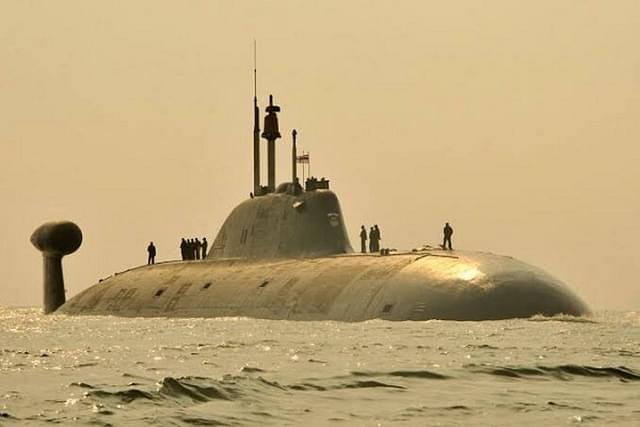SOURCE: RAUNAK KUNDE / NEWS BEAT / IDRW.ORG


In 2019, India and Russia forged an agreement for the lease of an Akula-1 class nuclear-powered attack submarine from Russia, to be named Chakra III. This lease was set for a decade and was a significant development in India’s naval capabilities. However, amid the ongoing Russia-Ukraine conflict and Western sanctions on Russian entities, the deal has hit an impasse. The majority of payments from India for the lease have not been processed, raising questions about the fate of the Chakra III lease.
The Chakra III deal included the lease of an Akula-1 class nuclear attack submarine from Russia, with the delivery to the Indian Navy scheduled for 2025. This submarine was set to be the third Russian nuclear attack submarine leased to the Indian Navy. The agreement also covered the refurbishment of the submarine, incorporating Indian communication and sensor systems, as well as providing spare support and the technical infrastructure required for its operations.
Since the outbreak of the Russia-Ukraine conflict and the subsequent imposition of Western economic sanctions on Russian entities, India has faced difficulties in fulfilling its financial commitments for the Chakra III lease. As the conflict persists, the future of this agreement remains uncertain, with the prospect of it being abandoned becoming more likely. The completion of the refurbishment process necessary for the transfer of the submarine to India hinges on the payment issue.
Reports from last year indicated a potential shift in the 2025 deadline to late 2026. However, it remains unclear if any concrete progress has been made in addressing the payment concerns. The lack of resolution is preventing further steps in the procurement of additional attack submarines by India, as the refurbishment process is a prerequisite for their transfer.
The challenges surrounding the Chakra III deal have been exacerbated by the complex dynamics in India-Russia relations. Despite being traditional allies in defence and strategic cooperation, both countries have failed to settle payments for the S-400 missile defence system, leading to uncertainty in other military agreements, including the lease of submarines.
India has been actively working on its nuclear attack submarine program, but it is still in its early stages. The design work is expected to take approximately three more years to complete. The lease of Russian nuclear attack submarines was seen as a covert form of assistance to India’s indigenous nuclear attack submarine program.
NOTE : Article cannot be reproduced without written permission of idrw.org in any form even for YouTube Videos to avoid Copy right strikes. Websites doing illegal reproductions will get DCMA and Legal Notices.